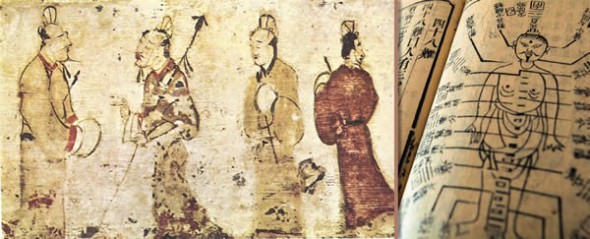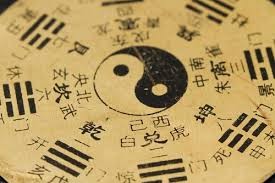



Chinese Natural Healing
Stephen Lau
Stephen Lau
Chinese Natural Healing
Stephen Lau
Stephen Lau






Mindfulness to Heal
Natural healing of the mind, body, and spirit begins with a healthy love relationship in which Buddhist compassion, generosity of giving, and loving kindness naturally thrive.
Mindful of Love Relationship
Many experts believe that marriage holds the key to natural healing and disease survival. According to research at the Veterans Administration Medical Center in Miami, individuals who were married lived longer than those who were either never married, or separated or divorced. Companionship gives you a reason to live for, or to combat a disease for your spouse. Therefore, a healthy love relationship is critical to physical, mental, and spiritual natural healing.
The trauma of bereavement may have a negative impact on your healthy lifestyle. But it is something that is not within your control. However, it is never too late to look for another partner for the rest of your life.
Separation and divorce can actually improve health, except in a relationship involving sudden discovery of infidelity.
Separation is more detrimental than a divorce.
Companionship is important in natural healing for the following reasons:
Companionship leads to opening of your heart to someone dear or close to you; sharing is critical to natural healing of the body and the mind for healthy living, since the lonely, the disenfranchised, and the disconnected often feel their existence purposeless, which may be damaging to mental health.
Sharing thoughts and feelings with others is natural healing itself.
Some experts have said that an individual whose only social role is as a worker will find problems at work more distressing than another individual who works, has a family, and belongs to social groups. Stress from social environments is one of the causes of heart attacks, especially in elderly individuals whose immune systems are already impaired and frail.
Individuals, who are lonely and isolated, are more inclined to smoke and drink, or indulge in binge eating. Feelings of alienation and disconnection are conducive to behaviors that may increase the risk of premature death or disease, and thus an impediment to healing and recovery.
A love relationship is important to your overall well-being, and hence to your natural healing and recuperation from a disease. Unfortunately, a good love relationship is hard to come by, as evidenced in the ever-increasing rate of divorce, especially in the Western world.
Mindfulness of Zen wisdom in love
Why is it so difficult to love and to be loved? What is the problem in getting a good love relationship?
The answer is in Zen wisdom, which teaches you about the mindfulness of love. (Zen is the Oriental practice of emptying the mind through awareness and meditation.)
Love is a gift, but you must be ready to receive it. Surprisingly, many people, without the mindfulness of love, are just not ready.
You want love, but you may be afraid to receive it. Yes, afraid! You want to reach out for it, but when you find it, you may, surprisingly and ironically, want to let it go. This is the irony in a love relationship.
But why is that?
The problem (in Zen wisdom, there is never a problem) is that you are looking for a "perfect" love relationship or the "right" person.
In your subconscious mind, that "perfect" love relationship or the "right" person can make you "happy" because deep in your mind a "good" love relationship is supposed to make you "feel good." In other words, you are using that "right" person to reinforce your self-image, thereby unwittingly creating the "fear" in your subconscious mind, because your well-being then becomes too dependent on that "right" person, so to speak.
According to Zen wisdom, you feel good about yourself for who and what you are. Self-acceptance is a prerequisite for success in any healthy relationship. It is unhealthy to use the love of another person to make you feel good about yourself.
What is the fallacy in that? When that "right" does turn up in your life, you would feel inadequate, undeserving, or simply incomplete. Subconsciously, you feel the relationship may not last, and you may consciously or subconsciously "anticipate" the rejection that you think will happen inevitably one day. Then you start picking fights and testing the other constantly even though deep down you may want that love relationship to last. Ironically, it may become a self-fulfilling prophesy.
Mindfulness in a love relationship is critical to its survival.
What does Zen wisdom teach you about love relationship?
According to Zen wisdom, you are the "perfect" person just as you are, and so is your partner.
If you cannot love yourself completely, you cannot love another person. It is just that simple. If you cannot accept something unpleasant or incomplete in yourself, you cannot accept something else that you think is unpleasant and incomplete in another person. If you reject that person, you are in fact rejecting part of yourself that you do not like.
In a love relationship, you often begin to wear a mask, hiding what you do not like about yourself from that "right" person. You are afraid of giving yourself completely and opening yourself frankly, and accepting yourself just as you really are. If you don't take off that mask of yours, you will only make any love relationship difficult to last.
According to Zen wisdom, you accept what is good and bad (indiscriminately) in a love relationship; you cannot take just the good and discard the bad. A love relationship is there to tell you what you need, not what you want. Hold all of life in the palm of your hands. Trust your inner strength and wisdom, and experience what life has to offer -- the good, the bad, and the ugly. That is the way of Zen in nourishing a love relationship
Mindfulness of Zen wisdom in sex
What does Zen teach you about sex?
According to TAO wisdom, the "yin" and the "yang" are two aspects of Heaven and Earth, which are in constant flux, controlling and restraining each other. They are forever at variance with each other, like the changes of the four seasons. These changes are what maintain balance and harmony in a healthy love relationship.
Sexual activity, or Zen sex, is the underlying force to maintain the tone of the physical body for ultimate health and wellness. Zen sex is sacred because it connects you in the most basic way to the source of Creation; it is an act symbolizing the origin of life, and hence is life itself.
Zen sex, which is human desire, is natural and should not be denied, repressed, or imposed on.
You don’t have to look outside of yourself for satisfaction of that desire. In Zen, everything is within yourself. Inward is where the key to happiness lies -- the key to the very meaning of existence, including the better Zen sex that you may crave.
Everyday life, including sex, is the path to Zen wisdom; there is always something to be learned from it. Just focus on the “experience” of life, including your “experience” of sex.
According to Zen, you are of the very thing you are looking for. In other words, do not make sex a goal or even a big deal; instead, let sex result naturally from the way you live your life. That is, don’t even “try” to do it; you simply “do” it naturally.
The following expresses succinctly the "spontaneity" of Zen wisdom:
"The sage keeps to the beginning to discover the end.
And finds without seeking;
Arrives without leaving;
Does without doing;
And knows without understanding."
The great challenge of Zen sex is to "do without doing" -- that is, to do what comes naturally in every moment to express naturally in every sexual act. In that way, sex never becomes a performance or a means to satisfy your sexual pleasure or that of your partner. Mindfulness of the spontaneity of sex is "performance without consciously performing." Make sex not a performance but an act of spontaneity.
Sex is nothing more than an experience of discovery -- the discovery of the desires and needs of yourself and those of your partner.
Discover the power within you to succeed through the mind. Find your pathways to a life of abundance and self-discovery.
Mindful of Buddhist Compassion and Generosity
Aside from love, Buddhist compassion and generosity are some of the greatest virtues needed by the mind to release the power of natural healing.
The goal of Buddhist compassion and generosity is to develop your mind to its fullest potential, which involves the acquisition of compassion and wisdom. Spiritual well-being involves developing a compassionate mind and working with the suffering of illness and disease in a positive way for natural healing.
Mindfulness of compassion
In Chinese, the word "compassion" means "removing suffering and giving happiness."
Compassion is inherent in human beings. Even a heartless villain loves his wife and children.
Anyone and everyone possess the potential to act and behave with compassion towards another person. Yet, there is a "self-centered" part of human that places concern for "self" first, and then that of others only when deemed necessary.
Contrary to the common belief that compassion is a sign of weakness and that generosity only spoils the receiver of kindness, true compassion has the power to root out the cause of misery in people's lives and direct them to the cause of happiness. Such compassion by its very nature requires courage and strength on the part of the giver.
Loving kindness, closely associated with compassion, is also a prominent feature of the way of life. Compassion and loving kindness complement each other. Extending good will, care and consideration to all human beings is something to be cherished and nourished for natural healing.
Compassion is simple: generate feelings of loving kindness to oneself, then to a friend or relative, next to a neutral person, and then finally to someone you feel angry about. In this way, feelings of hostility are washed away and the destructive energy, often damaging to one's health, that has been directed towards the person in mind can then be redirected to more positive channels for your own natural healing.
Compassion and loving-kindness are antidotes to selfish desire, hatred and cruelty. The aim in is to have these two qualities underpinning all your thoughts and actions. Accordingly, you will develop a proper attitude to others and to the world around you for optimum mental and spiritual health required for any natural healing.
Mindfulness of generosity of giving
Generosity is the joy of charity and the blessing of giving. According to Buddha, each event in life is a miracle, forming the basis of a love relationship in family, at work, or among friends.
Generosity of giving attests to the reason of Creation because a Higher Being's giving nature necessitates the creation of a receiver. By generosity of giving, you are essentially carrying the miraculous mission of finding the receiver for the Higher Being. The art of giving is tantamount to the art of living in the miraculous. In the very act of generosity giving, you experience sharing, self-realization, and high-mindedness.
Charity is a spiritual love. By generosity of giving, you are responding to an action: you are meeting or fulfilling someone's need. By giving constantly, you are responding to an intention: a commitment to doing good. By giving selflessly (with no expectation of return or even thanks), you are responding to a Higher Being's unconditional love. Generosity opens the door to receiving the blessing of natural healing.
Mindfulness of a healthy love relationship, based on compassion, loving-kindness and generosity of giving, generates the inherent power of natural healing.
Stephen Lau
Copyright© by Stephen Lau
Natural healing of the mind, body, and spirit begins with a healthy love relationship in which Buddhist compassion, generosity of giving, and loving kindness naturally thrive.
Mindful of Love Relationship
Many experts believe that marriage holds the key to natural healing and disease survival. According to research at the Veterans Administration Medical Center in Miami, individuals who were married lived longer than those who were either never married, or separated or divorced. Companionship gives you a reason to live for, or to combat a disease for your spouse. Therefore, a healthy love relationship is critical to physical, mental, and spiritual natural healing.
The trauma of bereavement may have a negative impact on your healthy lifestyle. But it is something that is not within your control. However, it is never too late to look for another partner for the rest of your life.
Separation and divorce can actually improve health, except in a relationship involving sudden discovery of infidelity.
Separation is more detrimental than a divorce.
Companionship is important in natural healing for the following reasons:
Companionship leads to opening of your heart to someone dear or close to you; sharing is critical to natural healing of the body and the mind for healthy living, since the lonely, the disenfranchised, and the disconnected often feel their existence purposeless, which may be damaging to mental health.
Sharing thoughts and feelings with others is natural healing itself.
Some experts have said that an individual whose only social role is as a worker will find problems at work more distressing than another individual who works, has a family, and belongs to social groups. Stress from social environments is one of the causes of heart attacks, especially in elderly individuals whose immune systems are already impaired and frail.
Individuals, who are lonely and isolated, are more inclined to smoke and drink, or indulge in binge eating. Feelings of alienation and disconnection are conducive to behaviors that may increase the risk of premature death or disease, and thus an impediment to healing and recovery.
A love relationship is important to your overall well-being, and hence to your natural healing and recuperation from a disease. Unfortunately, a good love relationship is hard to come by, as evidenced in the ever-increasing rate of divorce, especially in the Western world.
Mindfulness of Zen wisdom in love
Why is it so difficult to love and to be loved? What is the problem in getting a good love relationship?
The answer is in Zen wisdom, which teaches you about the mindfulness of love. (Zen is the Oriental practice of emptying the mind through awareness and meditation.)
Love is a gift, but you must be ready to receive it. Surprisingly, many people, without the mindfulness of love, are just not ready.
You want love, but you may be afraid to receive it. Yes, afraid! You want to reach out for it, but when you find it, you may, surprisingly and ironically, want to let it go. This is the irony in a love relationship.
But why is that?
The problem (in Zen wisdom, there is never a problem) is that you are looking for a "perfect" love relationship or the "right" person.
In your subconscious mind, that "perfect" love relationship or the "right" person can make you "happy" because deep in your mind a "good" love relationship is supposed to make you "feel good." In other words, you are using that "right" person to reinforce your self-image, thereby unwittingly creating the "fear" in your subconscious mind, because your well-being then becomes too dependent on that "right" person, so to speak.
According to Zen wisdom, you feel good about yourself for who and what you are. Self-acceptance is a prerequisite for success in any healthy relationship. It is unhealthy to use the love of another person to make you feel good about yourself.
What is the fallacy in that? When that "right" does turn up in your life, you would feel inadequate, undeserving, or simply incomplete. Subconsciously, you feel the relationship may not last, and you may consciously or subconsciously "anticipate" the rejection that you think will happen inevitably one day. Then you start picking fights and testing the other constantly even though deep down you may want that love relationship to last. Ironically, it may become a self-fulfilling prophesy.
Mindfulness in a love relationship is critical to its survival.
What does Zen wisdom teach you about love relationship?
According to Zen wisdom, you are the "perfect" person just as you are, and so is your partner.
If you cannot love yourself completely, you cannot love another person. It is just that simple. If you cannot accept something unpleasant or incomplete in yourself, you cannot accept something else that you think is unpleasant and incomplete in another person. If you reject that person, you are in fact rejecting part of yourself that you do not like.
In a love relationship, you often begin to wear a mask, hiding what you do not like about yourself from that "right" person. You are afraid of giving yourself completely and opening yourself frankly, and accepting yourself just as you really are. If you don't take off that mask of yours, you will only make any love relationship difficult to last.
According to Zen wisdom, you accept what is good and bad (indiscriminately) in a love relationship; you cannot take just the good and discard the bad. A love relationship is there to tell you what you need, not what you want. Hold all of life in the palm of your hands. Trust your inner strength and wisdom, and experience what life has to offer -- the good, the bad, and the ugly. That is the way of Zen in nourishing a love relationship
Mindfulness of Zen wisdom in sex
What does Zen teach you about sex?
According to TAO wisdom, the "yin" and the "yang" are two aspects of Heaven and Earth, which are in constant flux, controlling and restraining each other. They are forever at variance with each other, like the changes of the four seasons. These changes are what maintain balance and harmony in a healthy love relationship.
Sexual activity, or Zen sex, is the underlying force to maintain the tone of the physical body for ultimate health and wellness. Zen sex is sacred because it connects you in the most basic way to the source of Creation; it is an act symbolizing the origin of life, and hence is life itself.
Zen sex, which is human desire, is natural and should not be denied, repressed, or imposed on.
You don’t have to look outside of yourself for satisfaction of that desire. In Zen, everything is within yourself. Inward is where the key to happiness lies -- the key to the very meaning of existence, including the better Zen sex that you may crave.
Everyday life, including sex, is the path to Zen wisdom; there is always something to be learned from it. Just focus on the “experience” of life, including your “experience” of sex.
According to Zen, you are of the very thing you are looking for. In other words, do not make sex a goal or even a big deal; instead, let sex result naturally from the way you live your life. That is, don’t even “try” to do it; you simply “do” it naturally.
The following expresses succinctly the "spontaneity" of Zen wisdom:
"The sage keeps to the beginning to discover the end.
And finds without seeking;
Arrives without leaving;
Does without doing;
And knows without understanding."
The great challenge of Zen sex is to "do without doing" -- that is, to do what comes naturally in every moment to express naturally in every sexual act. In that way, sex never becomes a performance or a means to satisfy your sexual pleasure or that of your partner. Mindfulness of the spontaneity of sex is "performance without consciously performing." Make sex not a performance but an act of spontaneity.
Sex is nothing more than an experience of discovery -- the discovery of the desires and needs of yourself and those of your partner.
Discover the power within you to succeed through the mind. Find your pathways to a life of abundance and self-discovery.
Mindful of Buddhist Compassion and Generosity
Aside from love, Buddhist compassion and generosity are some of the greatest virtues needed by the mind to release the power of natural healing.
The goal of Buddhist compassion and generosity is to develop your mind to its fullest potential, which involves the acquisition of compassion and wisdom. Spiritual well-being involves developing a compassionate mind and working with the suffering of illness and disease in a positive way for natural healing.
Mindfulness of compassion
In Chinese, the word "compassion" means "removing suffering and giving happiness."
Compassion is inherent in human beings. Even a heartless villain loves his wife and children.
Anyone and everyone possess the potential to act and behave with compassion towards another person. Yet, there is a "self-centered" part of human that places concern for "self" first, and then that of others only when deemed necessary.
Contrary to the common belief that compassion is a sign of weakness and that generosity only spoils the receiver of kindness, true compassion has the power to root out the cause of misery in people's lives and direct them to the cause of happiness. Such compassion by its very nature requires courage and strength on the part of the giver.
Loving kindness, closely associated with compassion, is also a prominent feature of the way of life. Compassion and loving kindness complement each other. Extending good will, care and consideration to all human beings is something to be cherished and nourished for natural healing.
Compassion is simple: generate feelings of loving kindness to oneself, then to a friend or relative, next to a neutral person, and then finally to someone you feel angry about. In this way, feelings of hostility are washed away and the destructive energy, often damaging to one's health, that has been directed towards the person in mind can then be redirected to more positive channels for your own natural healing.
Compassion and loving-kindness are antidotes to selfish desire, hatred and cruelty. The aim in is to have these two qualities underpinning all your thoughts and actions. Accordingly, you will develop a proper attitude to others and to the world around you for optimum mental and spiritual health required for any natural healing.
Mindfulness of generosity of giving
Generosity is the joy of charity and the blessing of giving. According to Buddha, each event in life is a miracle, forming the basis of a love relationship in family, at work, or among friends.
Generosity of giving attests to the reason of Creation because a Higher Being's giving nature necessitates the creation of a receiver. By generosity of giving, you are essentially carrying the miraculous mission of finding the receiver for the Higher Being. The art of giving is tantamount to the art of living in the miraculous. In the very act of generosity giving, you experience sharing, self-realization, and high-mindedness.
Charity is a spiritual love. By generosity of giving, you are responding to an action: you are meeting or fulfilling someone's need. By giving constantly, you are responding to an intention: a commitment to doing good. By giving selflessly (with no expectation of return or even thanks), you are responding to a Higher Being's unconditional love. Generosity opens the door to receiving the blessing of natural healing.
Mindfulness of a healthy love relationship, based on compassion, loving-kindness and generosity of giving, generates the inherent power of natural healing.
Stephen Lau
Copyright© by Stephen Lau